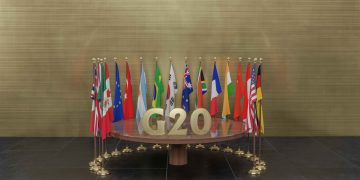BRICS nations have significantly reduced their reliance on the U.S. dollar and the euro, with these currencies now comprising less than 30% of payments within the bloc. This strategic shift towards national currencies aims to reduce dependency on Western financial systems amid ongoing geopolitical tensions and economic sanctions.
According to Russian Finance Minister Anton Siluanov, 65% of transactions among BRICS member countries are now conducted in local currencies, including the Russian ruble. Speaking in Moscow, Siluanov highlighted the growing adoption of national currencies for settlements, emphasizing that the trend is a practical move towards strengthening the group’s economic independence.
With the recent inclusion of Iran, Egypt, Ethiopia, Saudi Arabia, and the United Arab Emirates, BRICS has expanded its influence in the global economic and political landscape. The bloc, which originally comprised Brazil, Russia, India, China, and South Africa, now plays a crucial role in challenging Western-dominated financial systems.
Siluanov confirmed the declining share of the dollar and euro, explaining, “Indeed, we are in practice using national currencies and the Russian ruble within BRICS — 65% of all the settlements are made in rubles and national currencies.” The move away from the dollar and euro reflects BRICS’ broader strategy to promote dedollarization, which has gained momentum due to the sanctions imposed on Russia and other geopolitical challenges.
By prioritizing the use of local currencies, BRICS nations are not only reducing their exposure to Western sanctions but also strengthening economic ties among themselves. The shift signals a proactive approach to establishing a more resilient and diversified financial framework that is less vulnerable to external pressures.
This dedollarization effort aligns with BRICS’ goal of enhancing monetary sovereignty and fostering economic stability. As the group continues to promote the use of national currencies for cross-border transactions, it is setting a precedent for other emerging economies seeking alternatives to traditional financial systems.





















